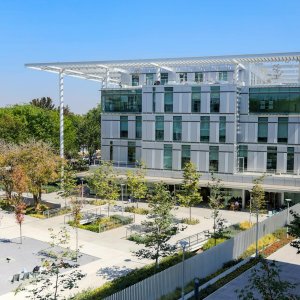Cities From the Point of View of Economic Complexity

STORY INLINE POST
Cities must be contextualized in every sense. One such way is from the point of view of the economic complexity of the country they are in, of the state and of their own commercial activity.
Hausmann et al. (2013) define economic complexity as a measure of how complete the network of interactions between firms in an economy is in order to know how much productive knowledge a society mobilizes.
The greater the complexity, transmission and use of knowledge between economic agents, the higher the degree of development. One way to gauge the amount of knowledge in the economy is to look at the products exported and the amount of knowledge and value-add they generate. Complexity is, therefore, related to the capabilities, resources, technologies, human capital and infrastructure required for its development.
According to the Observatory of Economic Complexity, in 2000, Mexico was ranked 30th; in 2010, it was 23rd and in 2020, Mexico was the ninth most complex economy in total exports, 13th in total imports and the 21st most complex economy in terms of ECI.
What does it mean to be in a more economically complex state?
The fact that a state has greater economic complexity implies that the environment in which companies move, the generation of products, imports and exports define the state's vocations. This does not imply uniformity throughout the state; for example, an analysis of the different municipalities in Hidalgo concluded that there are: i) non-diversified municipalities with standard products; ii) diversified municipalities with standard products; iii) non-diversified municipalities with exclusive products and diversified municipalities with exclusive products. And this categoriz ation implies differential public policy design.
This type of analysis applies to all states. In the first half of 2022, the most complex states were Nuevo Leon; Queretaro; Coahuila; Baja California; Chihuahua; and Jalisco.
How is this complexity being built in a municipality like Tequila?

If we analyze the evolution of indicators in Tequila, we can see that in the last 10 years, there has been a relative improvement in all indicators and that the Gini inequality index shows low inequality. In short, there is a path that complexity opens up.
If economic complexity is a combination of knowledge in certain industries, its tangibiliz ation occurs at the level of product space, which can be related in a certain way to the concept of adjacent processes, i.e. adding up where there are common bases for improvement.
How does a “Pueblo Mágico Inteligente” like Tequila become more complex?
Every town has a primary vocation and there are different types of vocations. They can be: a) Destination like the Vatican; b) Non-substitutive like Detroit; c) Opportunities like New York and d) Cumulative like Tequila.
Tequila has a primary vocation that has been followed by an additional one based on the culture itself, which has given it greater intensity in complexity. Thus, Tequila, from an industrial vocation, has had, as Charles Handy would say "a second curve" allowing it to overcome the Law of Diminishing Marginal Returns and to achieve a tourist vocation based on the culture of tequila, the charro, the mariachi; that is to say, the essence of Mexicanity.
What does this teach us?
First of all, that "additional vocations" can be:
- A multidisciplinary creation
- A validation of society
- A process of territorial consolidation
- A public-private investment
- An understanding of a cultural context
- Governance management
- A drive for complexity
But these things do not happen in a vacuum if there are no possibilities to diversify, to dynamize, to change and to be adopted by its society while maintaining its authenticity and being able to give itself time, and without time it is not possible to evolve from one vocation to another. Cities may have a first vocation that defines their complexity but it is only the beginning; complexity can be cumulative: you have to look for it and find it as Tequila did.
Juan Enriquez clearly expressed the pursuit of knowledge as a key trend not only in cities but even in postal codes: "If one had to choose a single corner, anywhere on the planet, as the most innovative and productive crossroads in history, the intersection of Vassar Street and Main Street, in the new world of Cambridge, Massachusetts, would be a prime candidate. A couple of decades ago, much of the area was a motley collection of warehouses, car parks and old barracks. Now, this corner can generate 1 to 2 percent of the future global economy and can be a model for the creation of jobs, knowledge and power in other cities. This corner can generate 1 to 2 percent of the future global economy."
Complexity is, therefore, essential to cities and must be valued as such. City managers need to stop thinking like the Industrial Revolution and start thinking in terms of the complexity revolution.








 By Federico de Arteaga | Head of Project -
Tue, 09/27/2022 - 13:00
By Federico de Arteaga | Head of Project -
Tue, 09/27/2022 - 13:00
















